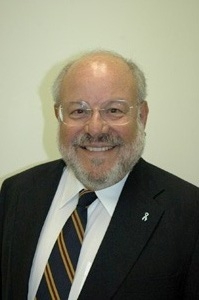This is where pressure must be focused-- through grassroots actions and through politics, and by media-- directed at the "nuclear weapons states."
People should join in with ICAN, become members. Its website is: https://www.icanw.org/
Can the atomic genie be put back in the bottle? Anything people have done other people can undo. And the prospect of massive loss of life from nuclear destruction is the best of reasons.
There's a precedent: the outlawing of chemical warfare after World War I when its terrible impacts were horrifically demonstrated, killing 90,000. The Geneva Protocol of 1925 and the Chemicals Weapons Convention of 1933 outlawed chemical warfare and to a large degree the prohibition has held.
There are some in the United States, in Russia, and elsewhere who think nuclear war is winnable. Journalist Robert Scheer wrote a book published in 1982: With Enough Shovels: Reagan, Bush & Nuclear War. The title was from T.K. Jones, a deputy undersecretary of defense, who said that with a shovel, anyone could dig a fallout shelter-- a hole in the ground with a door over the top."
Nuclear weaponry today-- 79 years after the atomic-bombing of Hiroshima and Nagasaki-- involves yet more gigantic destructive power.
Take the Ohio-class ballistic missile submarines built in Groton, Connecticut, across the Long Island Sound from where I live on Long Island, New York. As The National Interest describes them: "If you do the math, the Ohio-class boats may be the most destructive weapon system created by humankind. Each of the 170-meter-long vessels can carry twenty-four Trident II submarine-launched ballistic missiles which can be fired from underwater to strike at targets more than seven thousand miles away"As a Trident II reenters the atmosphere at speeds of up to Mach 24, it splits into up to eight independent reentry vehicles, each with a 100- or 475-kiloton nuclear warhead. In short, a full salvo from an Ohio-class submarine -- which can be launched in less than one minute-- could unleash up to 192 nuclear warheads to wipe twenty-four cities off the map. This is a nightmarish weapon of the apocalypse."
As to so-called "nuclear deterrence," I just did a TV program, aired nationally last month, "Commander Robert Green and Security without Nuclear Deterrence." Green was deeply involved in the readiness of Great Britain to use nuclear weapons as a bombardier-navigator on a Buccaneer nuclear strike jet. Then he worked in the Ministry of Defense and was staff officer for intelligence to the Commander-in-Chief Fleet during the 1982 Falklands War. That war was a turning point for Green.
"The Falklands War raised major concerns relating to nuclear weapons," says Green. During the war there was "a very secret contingency plan" to "move a Polaris submarine"within range of Buenos Aires" and the possibility of it conducting a "nuclear strike" on Argentina. "Fortunately, there was no need for that plan to be implemented because we won," says Green.
He retired from the British Navy in 1982 and became an opponent of nuclear warfare. He became a peace activist and was involved in the campaign that led the International Court of Justice in 1996 to rule the threat and use of nuclear weapons were illegal.
He says there has been a "systematic effort to play down the appalling side effects and 'overkill'"with even the smallest modern nuclear weapons," how they are "not weapons at all. They are utterly indiscriminate devices that combine the poisoning horrors of chemical and biological weapons of mass destruction, plus effects"of radioactivity, with almost unimaginable explosive violence."
The "deterrence theory" multiplies the likelihood of the use of nuclear weapons, he says. The program can be viewed at Click Here
There's the widely reported comment from Trump about nuclear weapons-- which a spokesperson denied his making-- that "if we have them, why can't we use them?"
Guterres has also said: "Today, the terrifying lessons of Hiroshima and Nagasaki are fading from memory".In a world rife with geopolitical tensions and mistrust, this is a recipe for annihilation. We cannot allow the nuclear weapons wielded by a handful of states to jeopardize all life on our planet. We must stop knocking at doomsday's door."
Abolition of nuclear weapons globally has long been a top priority of the UN. Indeed, in 1946 the first resolution-- Resolution 1-- of the UN, adopted by consensus, called for the creation of a commission to "make specific proposals"for the elimination from national armaments of nuclear weapons." That vision, the abolition of nuclear weapons, must become reality.
Pope Francis, in a visit to Nagasaki in which he condemned the "unspeakable horror" of nuclear weapons, said: "A world without nuclear weapons is possible and necessary."
(Note: You can view every article as one long page if you sign up as an Advocate Member, or higher).





